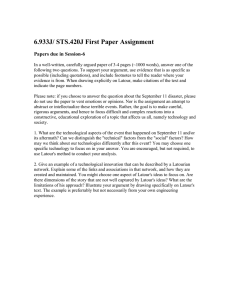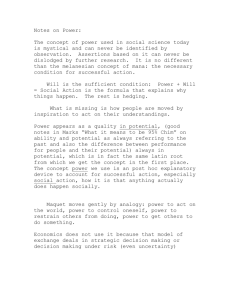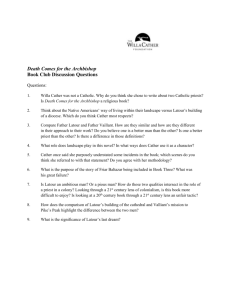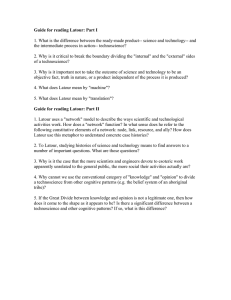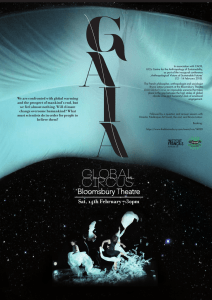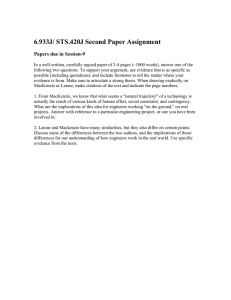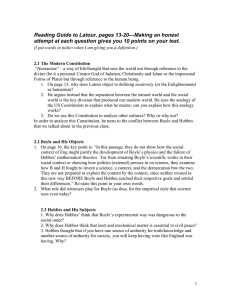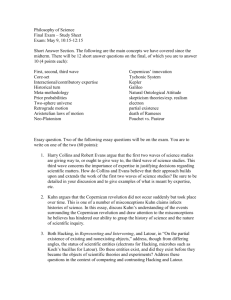——Making an honest Reading Guide to Latour, pages 20-29
advertisement
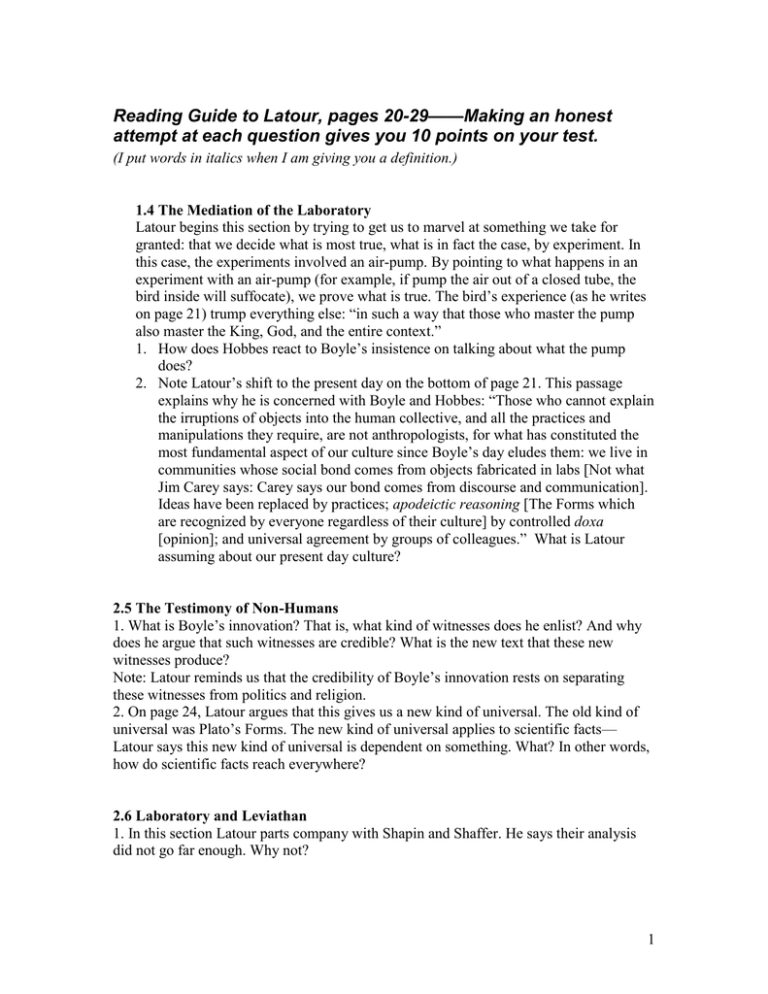
Reading Guide to Latour, pages 20-29——Making an honest attempt at each question gives you 10 points on your test. (I put words in italics when I am giving you a definition.) 1.4 The Mediation of the Laboratory Latour begins this section by trying to get us to marvel at something we take for granted: that we decide what is most true, what is in fact the case, by experiment. In this case, the experiments involved an air-pump. By pointing to what happens in an experiment with an air-pump (for example, if pump the air out of a closed tube, the bird inside will suffocate), we prove what is true. The bird’s experience (as he writes on page 21) trump everything else: “in such a way that those who master the pump also master the King, God, and the entire context.” 1. How does Hobbes react to Boyle’s insistence on talking about what the pump does? 2. Note Latour’s shift to the present day on the bottom of page 21. This passage explains why he is concerned with Boyle and Hobbes: “Those who cannot explain the irruptions of objects into the human collective, and all the practices and manipulations they require, are not anthropologists, for what has constituted the most fundamental aspect of our culture since Boyle’s day eludes them: we live in communities whose social bond comes from objects fabricated in labs [Not what Jim Carey says: Carey says our bond comes from discourse and communication]. Ideas have been replaced by practices; apodeictic reasoning [The Forms which are recognized by everyone regardless of their culture] by controlled doxa [opinion]; and universal agreement by groups of colleagues.” What is Latour assuming about our present day culture? 2.5 The Testimony of Non-Humans 1. What is Boyle’s innovation? That is, what kind of witnesses does he enlist? And why does he argue that such witnesses are credible? What is the new text that these new witnesses produce? Note: Latour reminds us that the credibility of Boyle’s innovation rests on separating these witnesses from politics and religion. 2. On page 24, Latour argues that this gives us a new kind of universal. The old kind of universal was Plato’s Forms. The new kind of universal applies to scientific facts— Latour says this new kind of universal is dependent on something. What? In other words, how do scientific facts reach everywhere? 2.6 Laboratory and Leviathan 1. In this section Latour parts company with Shapin and Shaffer. He says their analysis did not go far enough. Why not? 1 2.7 Scientific Representation and Political Representation 1. Latour argues that TOGETHER Boyle and Hobbes are producing our modern world. Why? In other words: What does Boyle invent? What does Hobbes invent? And why does Latour think we have to look at them together in order to understand the modern world? 2. What does “representation” mean when it comes to the Leviathan? That is, who is representing whom/what? 3. What does “representation” mean when it comes to the laboratory? That is, who is representing whom/what? 2
